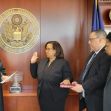A recent Texas federal judge ruling has blocked the Federal Trade Commission’s (FTC) attempt to implement a nationwide ban on noncompete agreements. This move is expected to ignite legislative efforts at the state level to restrict these agreements, particularly in the healthcare sector.
The FTC had sought to prohibit nearly all employee noncompete clauses, arguing that they stifle competition and limit workers' mobility. However, Judge Ada E. Brown of the U.S. District Court for the Northern District of Texas ruled this week that the FTC lacks the legal authority to impose such a sweeping ban. This decision casts doubt on the future of the FTC's rule, though the agency is reportedly considering an appeal.
The ruling has sparked renewed interest among state lawmakers pushing for restrictions on noncompete agreements, especially for healthcare professionals. Advocates argue that noncompetes contribute to workforce shortages in critical areas, including rural regions where access to health care is already limited.
Several states have already taken action. California, Minnesota, North Dakota, and Oklahoma have outright bans on noncompete agreements. At the same time, states like Illinois, Louisiana, Maryland, and Pennsylvania have passed laws that limit such agreements for healthcare workers. These state-level efforts are expected to gain momentum following the Texas ruling.
The decision by Judge Brown also cited the U.S. Supreme Court’s ruling in Loper Bright Enterprises v. Raimondo, which signaled a reduced willingness by the court to grant federal agencies broad deference in interpreting statutes that are ambiguous or silent on specific issues. This has led some legal experts to predict that the FTC's rule might face further challenges if it reaches the Supreme Court.
Given the uncertainty surrounding the FTC’s rule, attorneys and policy analysts suggest that state-level legislation may be the most viable path forward for those seeking to limit noncompete agreements.
Business and hospital groups that have opposed the FTC rule have been active in lobbying against state legislation restricting noncompetes, arguing that such agreements are essential for protecting investments in employee recruitment and training, as well as safeguarding intellectual property and trade secrets.
Despite opposition, state-level efforts continue to gain traction. For instance, Maryland recently enacted a law banning noncompete agreements for healthcare professionals earning $350,000 or less annually, and Pennsylvania has limited noncompetes for certain medical professionals.






